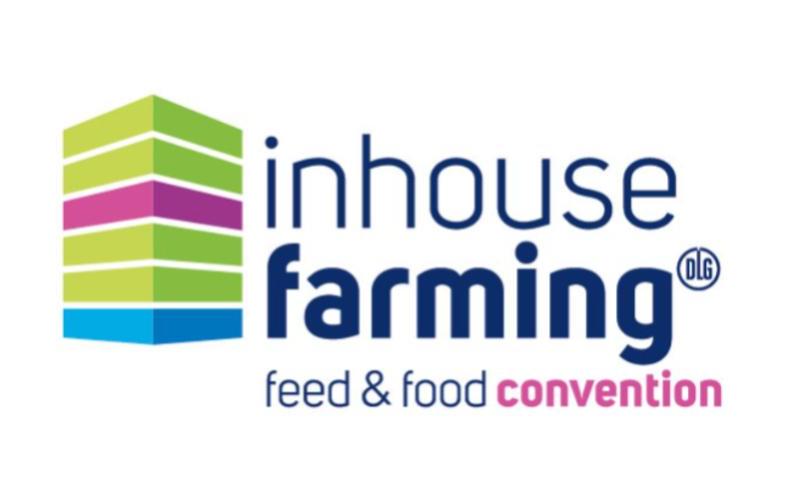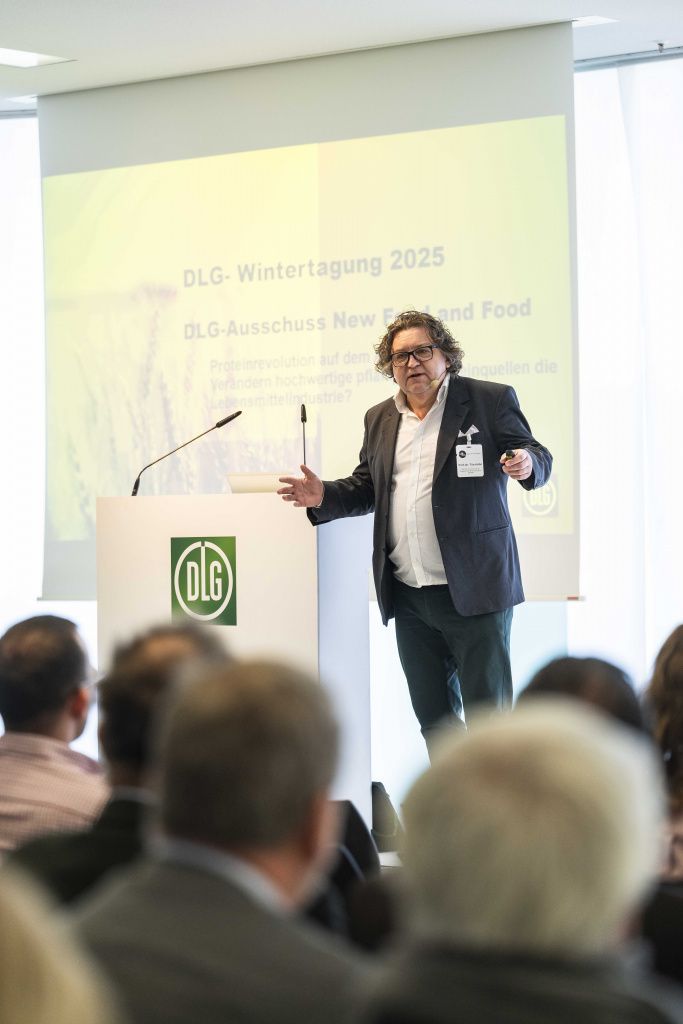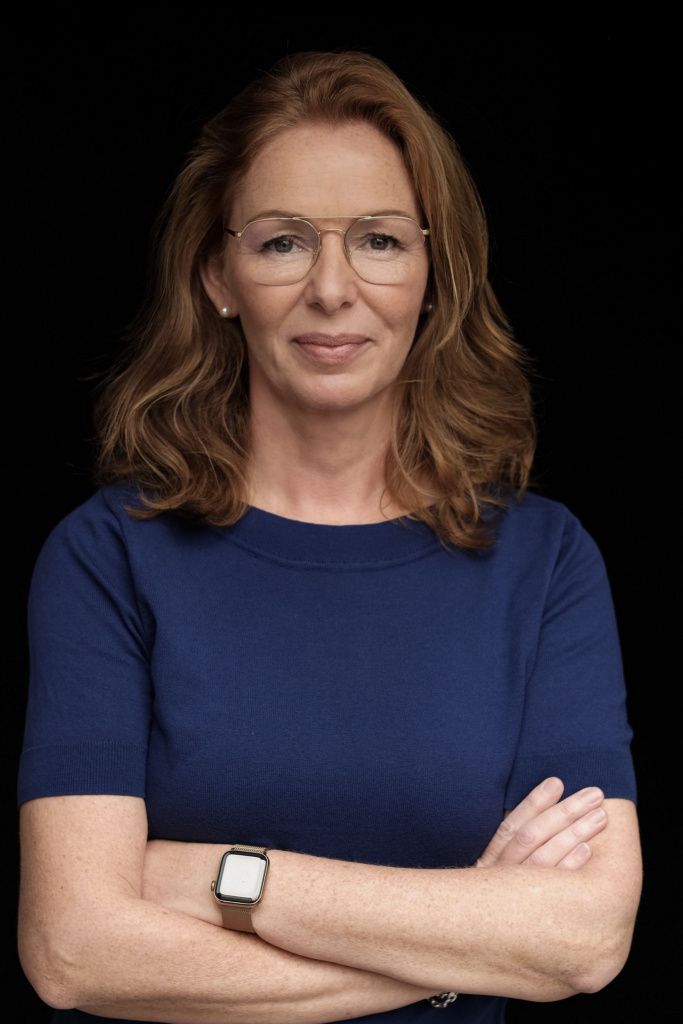Inhouse Farming – Feed & Food Convention 2025: today first mover, tomorrow market leader
International convention with foyer exhibition on 30 September and 1 October 2025 in Hamburg – Rethinking food systems, seizing market opportunities – Successfully establishing innovative and alternative business models step-by-step.

The trend towards flexitarianism, consumers' unwavering desire for sustainable, regional food and the necessity of adapting food production to climate change and the needs of a global population that is growing at the same time: for Simone Poppe and Prof. Tilo Hühn, these are the most important driving forces behind the increasing pressure to innovate in the agricultural and food value chain. In the expert interview, the two members of the DLG Committee for New Feed & Food categorise the market opportunities that are available in the area of inhouse farming and provide farmers with tips on what they should take into account under all circumstances before investing in the new market segment. The New Food professionals will therefore be giving us a taste of what is to come at the Inhouse Farming – Feed & Food Convention 2025 on 30 September and 1 October 2025 at the Congress Center Hamburg. The international convention with foyer exhibition will be focusing on innovative production systems within the agricultural and food value chain. The new DLG (German Agricultural Society) expert event will foster in-depth knowledge transfer on how, for instance, insect breeding, aquaculture or vertical farming can be transformed into viable business models.
"Climate change, the maintenance of biodiversity, protection against environmental contamination and the increasing risk of crop failures are major drivers of change in farming. This is resulting in pressure to innovate. New foods and feeds offer marketable products that promise solutions, which is why the segment is particularly attractive." This is how Prof. Tilo Hühn, ZHAW Zurich University of Applied Sciences, Life Sciences and Facility Management, and Chairman of the DLG Committee for New Feed and Food, views the importance of the 'inhouse farming and alternative proteins' market segment. Whether insects, algae or other new sources of protein will take hold on the market in the long term is dependent on numerous factors ranging fr om price to regulatory systems according to his analysis.
While Simone Poppe, owner and managing director of NewFood Consulting GmbH, a consulting company based in Oldenburg, states that farming as we know it "will not be replaced in its entirety by insect fattening or microalgae even in 20 years," she nevertheless appeals to agricultural entrepreneurs to already consider "what their soils will look like in 50 years and what business opportunities they would like to open up for their children."
Carefully analysing sales channels and farm structures before investing
Simone Poppe advises farmers who are considering embarking on the production of algae or legumes or insect fattening, for example, to exercise caution when investing in these new segments: "Farmers should approach investments in a controlled and step-by-step manner and should check whether existing structures can continue to be used sensibly. Whoever operates a farm slaughterhouse with their own shop could, for instance, use a small bioreactor to generate cell mass and process it directly on site. That would be a possible model for regional marketing." In addition, "It is also crucial whether you have a sales channel in the region, such as a mill that wants to buy your raw material, for instance."
Consumers' desire for regionality is opening up opportunities for producers
Meanwhile, Prof. Tilo Hühn regards the regionality of alternative protein products as an important argument for their future likelihood of success. The expert is convinced that this realisation will gradually become established amongst food retailers as well. "The first alternative meat products to be perceived by a wider public were launched onto the market in around 2012. At present, numerous retailers are implementing strategies with which they are aiming to meet the demand of flexitarians. As a group, vegans and vegans are too small, but the case with flexitarians is different," he analyses. While it is particularly important for food retailers "that meat products and alternative proteins cost approximately the same" at present, continues Hühn, "in the future, consumers may well want to know more exactly wh ere, for instance, the field beans for the substitute product come from. If they then hear that they're from China, consumers may no longer want to buy the product. Retailers will react then at the very latest."
Both experts also recommend networking as an important prerequisite for achieving success in the inhouse farming segment in the long term: "Networking is a very important topic, because numerous partners along the chain, from seed producers to food manufacturers, are also under pressure to change," says Simone Poppe, because "Everyone is changing their network structure and their value chain." Prof. Tilo Hühn also points out the great interest in alternative proteins demonstrated, for instance, by the deep-frozen food industry and general or corporate caterers.
Inhouse Farming – Feed & Food Convention 2025
How can food systems be rethought and made future-proof? This is the question that the Inhouse Farming – Feed & Food Convention will be focusing on from 30 September to 1 October 2025 at the Congress Center Hamburg. The two-day specialist convention will offer valuable insights into innovative and sustainable production methods such as vertical farming, insect breeding and aquaculture – topics that offer exciting prospects, especially for farms that are in the process of transforming. Experts from research and farming will be sharing their knowledge regarding economic implementation, new technologies and future-proof business models. The convention combines specialist conferences with interactive formats, a theme-specific exhibition and a varied technical programme.
"Climate change, the maintenance of biodiversity, protection against environmental contamination and the increasing risk of crop failures are major drivers of change in farming. This is resulting in pressure to innovate. New foods and feeds offer marketable products that promise solutions, which is why the segment is particularly attractive." This is how Prof. Tilo Hühn, ZHAW Zurich University of Applied Sciences, Life Sciences and Facility Management, and Chairman of the DLG Committee for New Feed and Food, views the importance of the 'inhouse farming and alternative proteins' market segment. Whether insects, algae or other new sources of protein will take hold on the market in the long term is dependent on numerous factors ranging fr om price to regulatory systems according to his analysis.
While Simone Poppe, owner and managing director of NewFood Consulting GmbH, a consulting company based in Oldenburg, states that farming as we know it "will not be replaced in its entirety by insect fattening or microalgae even in 20 years," she nevertheless appeals to agricultural entrepreneurs to already consider "what their soils will look like in 50 years and what business opportunities they would like to open up for their children."
Carefully analysing sales channels and farm structures before investing
Simone Poppe advises farmers who are considering embarking on the production of algae or legumes or insect fattening, for example, to exercise caution when investing in these new segments: "Farmers should approach investments in a controlled and step-by-step manner and should check whether existing structures can continue to be used sensibly. Whoever operates a farm slaughterhouse with their own shop could, for instance, use a small bioreactor to generate cell mass and process it directly on site. That would be a possible model for regional marketing." In addition, "It is also crucial whether you have a sales channel in the region, such as a mill that wants to buy your raw material, for instance."
Consumers' desire for regionality is opening up opportunities for producers
Meanwhile, Prof. Tilo Hühn regards the regionality of alternative protein products as an important argument for their future likelihood of success. The expert is convinced that this realisation will gradually become established amongst food retailers as well. "The first alternative meat products to be perceived by a wider public were launched onto the market in around 2012. At present, numerous retailers are implementing strategies with which they are aiming to meet the demand of flexitarians. As a group, vegans and vegans are too small, but the case with flexitarians is different," he analyses. While it is particularly important for food retailers "that meat products and alternative proteins cost approximately the same" at present, continues Hühn, "in the future, consumers may well want to know more exactly wh ere, for instance, the field beans for the substitute product come from. If they then hear that they're from China, consumers may no longer want to buy the product. Retailers will react then at the very latest."
Both experts also recommend networking as an important prerequisite for achieving success in the inhouse farming segment in the long term: "Networking is a very important topic, because numerous partners along the chain, from seed producers to food manufacturers, are also under pressure to change," says Simone Poppe, because "Everyone is changing their network structure and their value chain." Prof. Tilo Hühn also points out the great interest in alternative proteins demonstrated, for instance, by the deep-frozen food industry and general or corporate caterers.
The conclusion drawn by the two members of the DLG Committee for New Feed & Food: since the global population is growing and the impacts of climate change on the environment and farming are becoming increasingly clear, it remains vital to rethink value chains step-by-step. And today's first movers can be tomorrow's successful players. In this context, Simone Poppe recalls the classic example of 'Rügenwalder Mühle': "A number of years ago, the company was very courageous, a first mover. Today, it is a market leader in plant-based meat substitutes, but the company still has a classic meat operation for products that sell well here."
Inhouse Farming – Feed & Food Convention 2025
How can food systems be rethought and made future-proof? This is the question that the Inhouse Farming – Feed & Food Convention will be focusing on from 30 September to 1 October 2025 at the Congress Center Hamburg. The two-day specialist convention will offer valuable insights into innovative and sustainable production methods such as vertical farming, insect breeding and aquaculture – topics that offer exciting prospects, especially for farms that are in the process of transforming. Experts from research and farming will be sharing their knowledge regarding economic implementation, new technologies and future-proof business models. The convention combines specialist conferences with interactive formats, a theme-specific exhibition and a varied technical programme.
Key News of the Week











